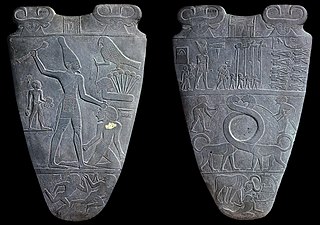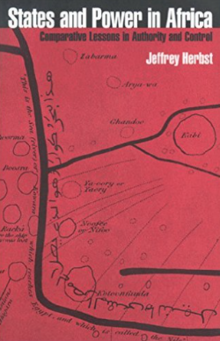
Colonialism is a practice by which a one group of people, social construct, or nation state controls, directs, or imposes taxes or tribute on other people or areas, often by establishing colonies, generally for strategic and economic advancement of the colonizing group or construct. There is no clear definition of colonialism; definitions may vary depending on the use and context.

Environmental determinism is the study of how the physical environment predisposes societies and states towards particular economic or social developmental trajectories. Jared Diamond, Jeffrey Herbst, Ian Morris, and other social scientists sparked a revival of the theory during the late twentieth and early twenty-first centuries. This "neo-environmental determinism" school of thought examines how geographic and ecological forces influence state-building, economic development, and institutions. While archaic versions of the geographic interpretation were used to encourage colonialism and eurocentrism, modern figures like Diamond use this approach to reject the racism in these explanations. Diamond argues that European powers were able to colonize due to unique advantages bestowed by their environment as opposed to any kind of inherent superiority.
Neocolonialism is the continuation or reimposition of imperialist rule by a state over another nominally independent state. Neocolonialism takes the form of economic imperialism, globalization, cultural imperialism and conditional aid to influence or control a developing country instead of the previous colonial methods of direct military control or indirect political control (hegemony).

Democratization, or democratisation, is the democratic transition to a more democratic political regime, including substantive political changes moving in a democratic direction.
International political economy (IPE) is the study of how politics shapes the global economy and how the global economy shapes politics. A key focus in IPE is on the distributive consequences of global economic exchange. It has been described as the study of "the political battle between the winners and losers of global economic exchange."

Barrington Moore Jr. was an American political sociologist, and the son of forester Barrington Moore.

Theda Skocpol is an American sociologist and political scientist, who is currently the Victor S. Thomas Professor of Government and Sociology at Harvard University. She is best known as an advocate of the historical-institutional and comparative approaches, as well as her "state autonomy theory". She has written widely for both popular and academic audiences. She has been President of the American Political Science Association and the Social Science History Association.

State-building as a specific term in social sciences and humanities, refers to political and historical processes of creation, institutional consolidation, stabilization and sustainable development of states, from the earliest emergence of statehood up to the modern times. Within historical and political sciences, there are several theoretical approaches to complex questions related to the role of various contributing factors in state-building processes.
Frederick Cooper is an American historian who specializes in colonialization, decolonialization, and African history. After finishing his BA at Stanford University in 1969, Cooper received his Doctor of Philosophy from Yale University in 1974. From 1974 to 1982 he was Assistant, then Associate Professor at Harvard University. Becoming Professor of History at the University of Michigan in 1982, he left for a professorship of history at New York University where he has worked since 2002.

European colonialism and colonization is the policy or practice of acquiring full or partial political control over other societies and territories, founding a colony, occupying it with settlers, and exploiting it economically. For example, colonial policies, such as the type of rule implemented, the nature of investments, and identity of the colonizers, are cited as impacting postcolonial states. Examination of the state-building process, economic development, and cultural norms and mores shows the direct and indirect consequences of colonialism on the postcolonial states.

The Great Divergence or European miracle is the socioeconomic shift in which the Western world overcame pre-modern growth constraints and emerged during the 19th century as the most powerful and wealthy world civilizations, eclipsing previously dominant or comparable civilizations from the Middle East and Asia such as the Ottoman Empire, Mughal India, Safavid Iran, Qing China and Tokugawa Japan, among others.
Simon E. Gikandi is a Kenyan Literature Professor and Postcolonial scholar. He is the Class of 1943 University Professor of English at Princeton University. He is perhaps best known for his co-editorship of The Cambridge History of African and Caribbean Literature. He has also done important work on the modern African novel, and two distinguished African novelists: Chinua Achebe and Ngũgĩ wa Thiong'o. In 2019 he became the president of the Modern Language Association.
Jeffrey I. Herbst is an American political scientist, specializing in comparative politics, and in July 2018 became the president of the American Jewish University in Los Angeles, California. Herbst was previously the 16th president of Colgate University, and president and CEO of the Newseum in Washington, D.C. He resigned from his post at the Newseum in 2017 as the museum announced financial issues. Prior to assuming the presidency of Colgate in 2010, he was provost, executive vice president for academic affairs, and professor of political science at Miami University. He received his B.A. from Princeton University in 1983, M.A., MPhil from Yale University in 1985, and Ph.D. in 1987 also from Yale. He is married to Sharon Polansky, with whom he has three children, Matthew, Spencer, and Alana.

Mahmood Mamdani, FBA is an Indian-born Ugandan academic, author, and political commentator. He currently serves as the Chancellor of Kampala International University, Uganda. He was the director of the Makerere Institute of Social Research (MISR) from 2010 until February 2022, the Herbert Lehman Professor of Government at the School of International and Public Affairs, Columbia University and the Professor of Anthropology, Political Science and African Studies at Columbia University.

Why Nations Fail: The Origins of Power, Prosperity, and Poverty, first published in 2012, is a book by economists Daron Acemoglu and James A. Robinson. The book applies insights from institutional economics, development economics and economic history to understand why nations develop differently, with some succeeding in the accumulation of power and prosperity and others failing, via a wide range of historical case studies.

State formation is the process of the development of a centralized government structure in a situation in which one did not exist. State formation has been a study of many disciplines of the social sciences for a number of years, so much so that Jonathan Haas writes, "One of the favorite pastimes of social scientists over the course of the past century has been to theorize about the evolution of the world's great civilizations."
Wealth in people is a concept developed by anthropologists and historians to describe social systems in which status, power, and influence are achieved and mediated through the number of one's dependents, followers, or other social ties and affiliations. The dependent's labor generates material wealth, which is in turn used to attach further dependents. Such systems can therefore exist independent of or alongside other capitalist or monetary modes of value and accumulation. The concept is most commonly applied to ethnographies and histories of Africa, particularly the tropical equatorial regions.
George Steinmetz is the Charles Tilly Collegiate Professor of Sociology and Germanic Languages and Literatures at the University of Michigan. He has taught at the New School for Social Research, the University of Chicago, and the School for Advanced Studies in the Social Sciences. He is a historical sociologist of empires, states, and cities, with a focus on modern Germany, France, and Britain and their colonies. His other main areas of research are social theory and the history and philosophy of the social sciences.
Critical juncture theory focuses on critical junctures, i.e., large, rapid, discontinuous changes, and the long-term causal effect or historical legacy of these changes. Critical junctures are turning points that alter the course of evolution of some entity. Critical juncture theory seeks to explain both (1) the historical origin and maintenance of social order, and (2) the occurrence of social change through sudden, big leaps.
David Stasavage is an American political scientist.











